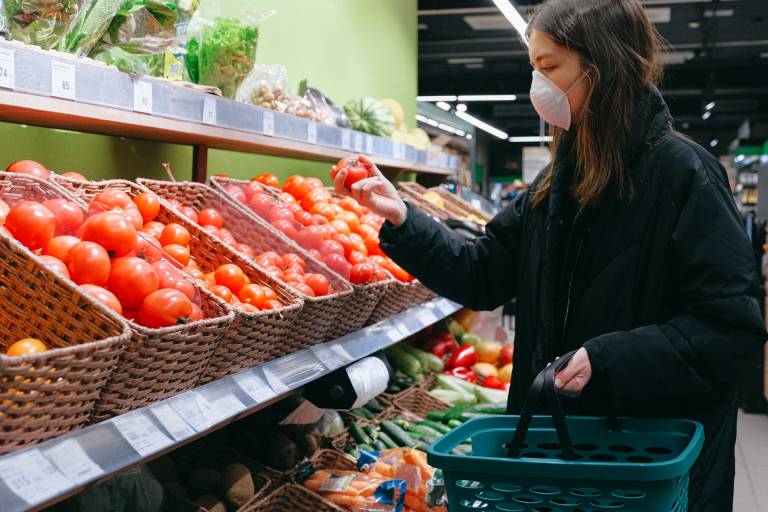Many people believe false information about food safety risks posed by COVID-19
3 June 2020
New research by UCL Institute of Education (IOE) doctoral researcher Alex Ruani has found people hold potentially harmful misperceptions about COVID-19 and nutrition.

The study, launched jointly with the Health Sciences Academy shortly after lockdowns began, saw the IOE’s Professor Michael Reiss and doctoral researcher Alex Ruani investigate the prevalence of misinformation surrounding COVID-19 food and eating practices.
The researchers designed a survey that contained 25 statements with participants answering whether they viewed the statements as ‘correct’, ‘incorrect’, or ‘not sure’.
Analysing answers by 3,781 respondents, the team found 43% of participants wrongly believe that it is safe to eat fruits and vegetables that have been washed with soap or diluted bleach, supposedly to remove potential COVID-19 viral particles.
Alex Ruani said: “It’s not safe to wash your fresh produce with soap or diluted bleach. But, quite worryingly, we found that a large number of people might be engaging in this harmful food practice despite food authorities’ warnings.”
The researchers also found that 21% of respondents believed “drinking water flushes all COVID-19 viral particles into the oesophagus and then the stomach, where they will be completely disintegrated by gastric acid”, with 22% unsure.
3.3% of participants believed “you can protect yourself from the novel coronavirus by gargling bleach”, with 7.5% unsure.
One quarter of participants thought that by “keep[ing] your mouth and throat always moist, saliva can encapsulate and deactivate the COVID-19 virus”. 29% of participants were unsure about this statement.
Of the 3,781 respondents, two-thirds of participants were from the UK, the USA, India and Ireland. The others came from one of 119 countries.
Encouragingly, 96% believe that to reduce the risk of COVID-19 infection, people should try to avoid direct contact with the person delivering groceries or packages and wash their hands thoroughly after bringing in packages or grocery deliveries.
Professor Reiss said: “Most people understand the importance of social distancing in preventing the spread of COVID-19. However, there are important misunderstandings about the implications of food and eating practices. Governments can help allay fears and reduce COVID-19 transmission by promoting clear public health messages about food and eating.”
Links
- View the story on the Health Sciences Academy website
- COVID-19 research at UCL Institute of Education
- View Alex Ruani's profile
- View Professor Michael Reiss’ research profile
- Department of Curriculum, Pedagogy and Assessment
Image
Image: Anna Shvets from Pexels
 Close
Close

